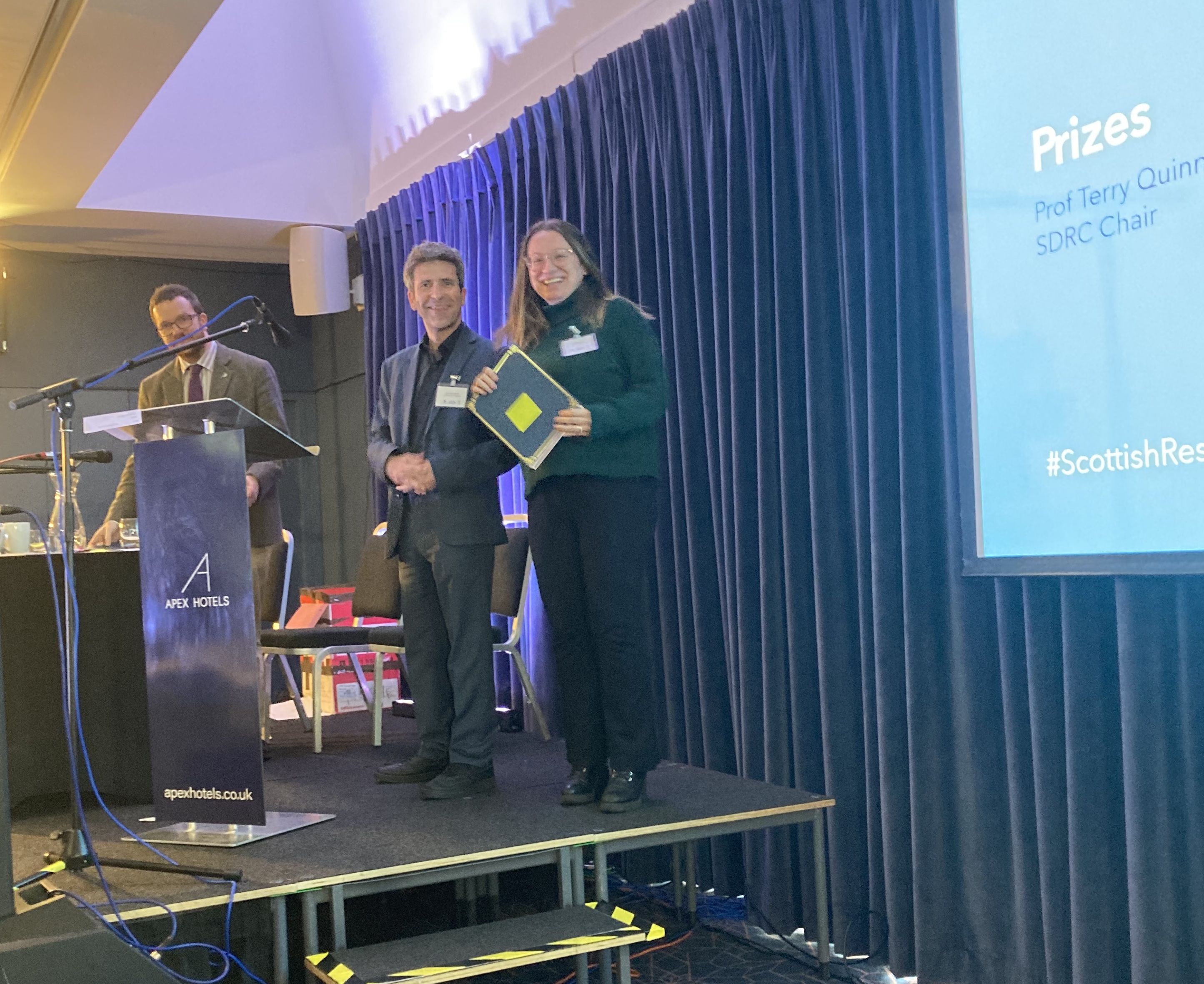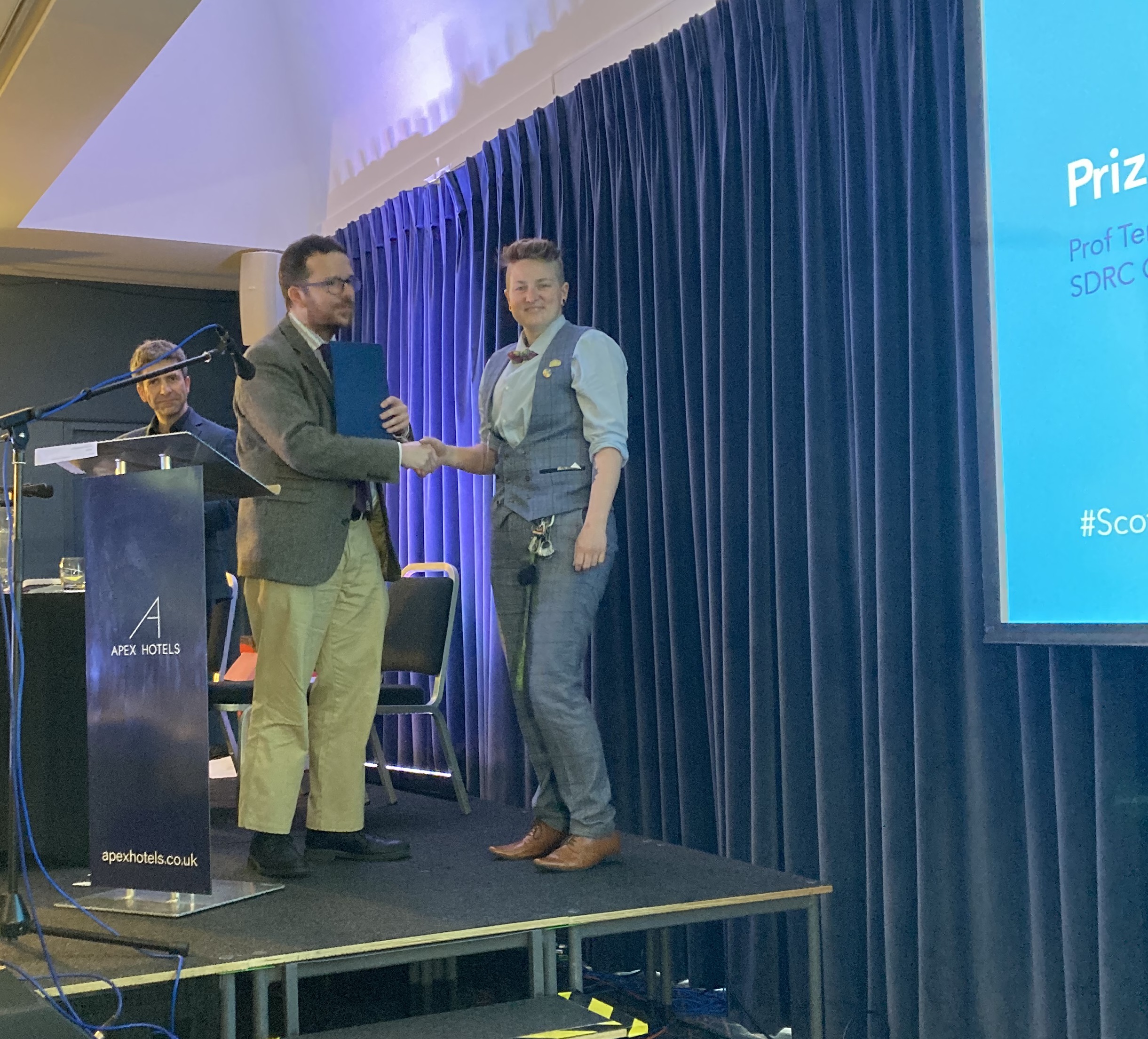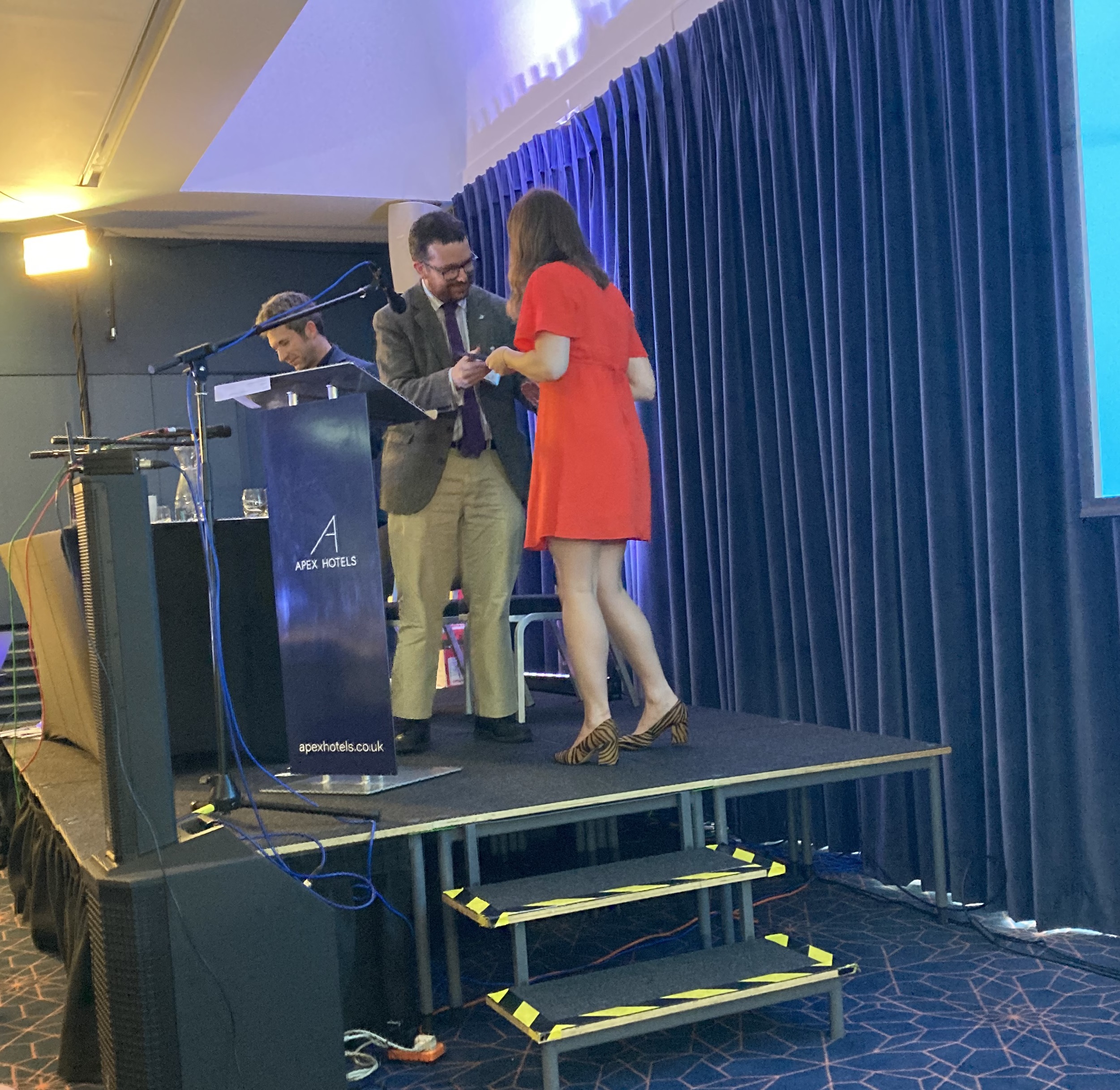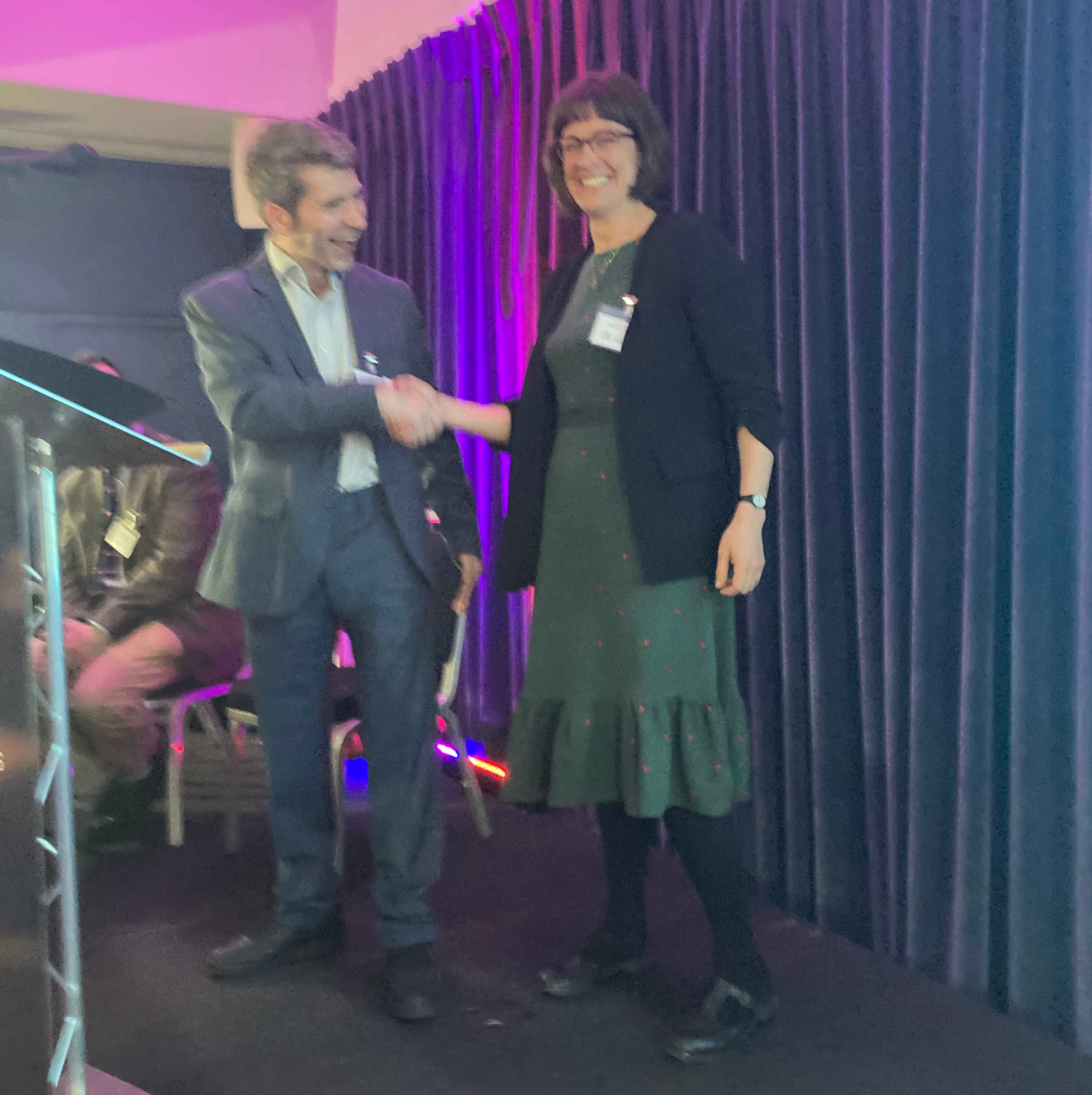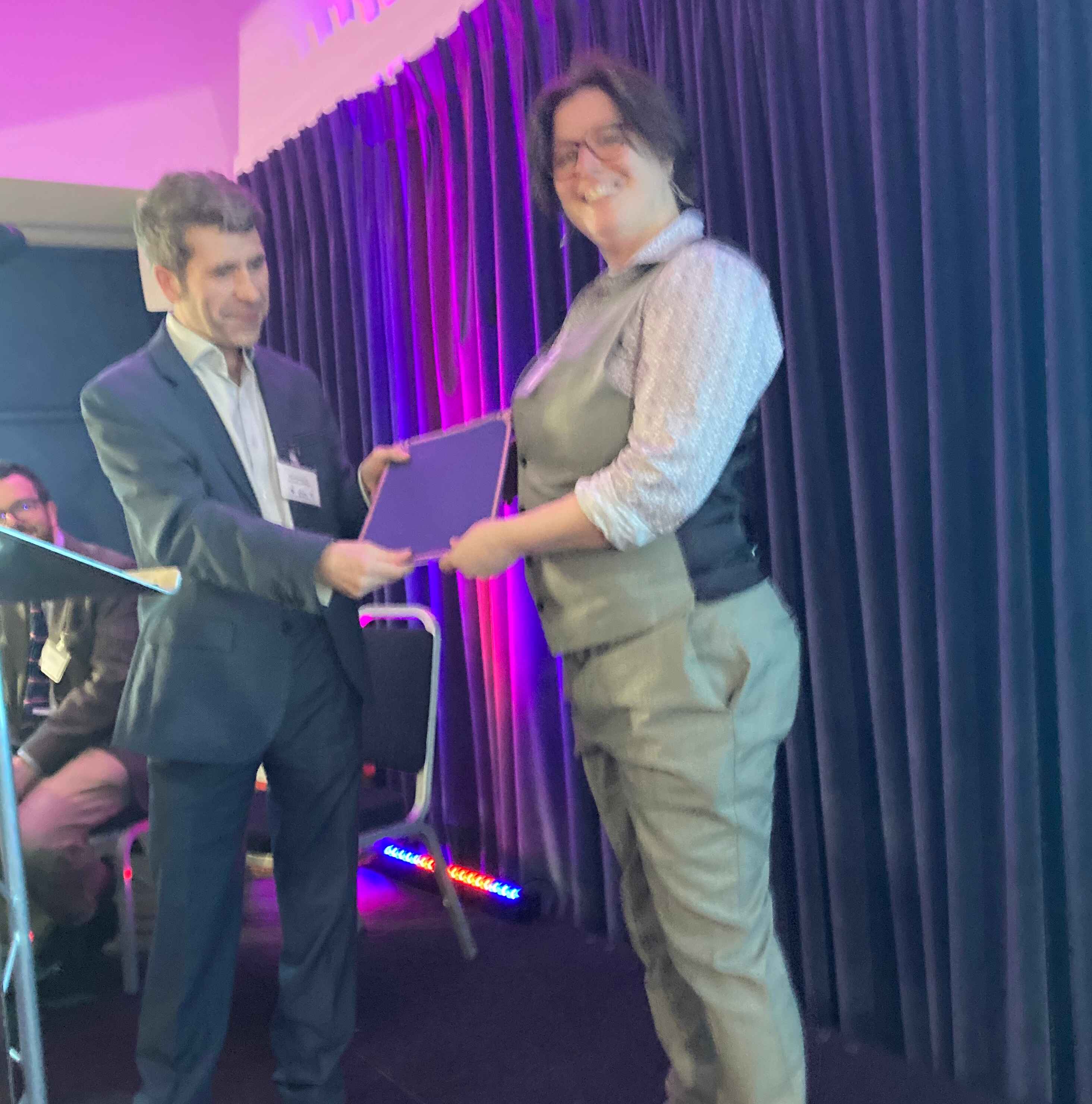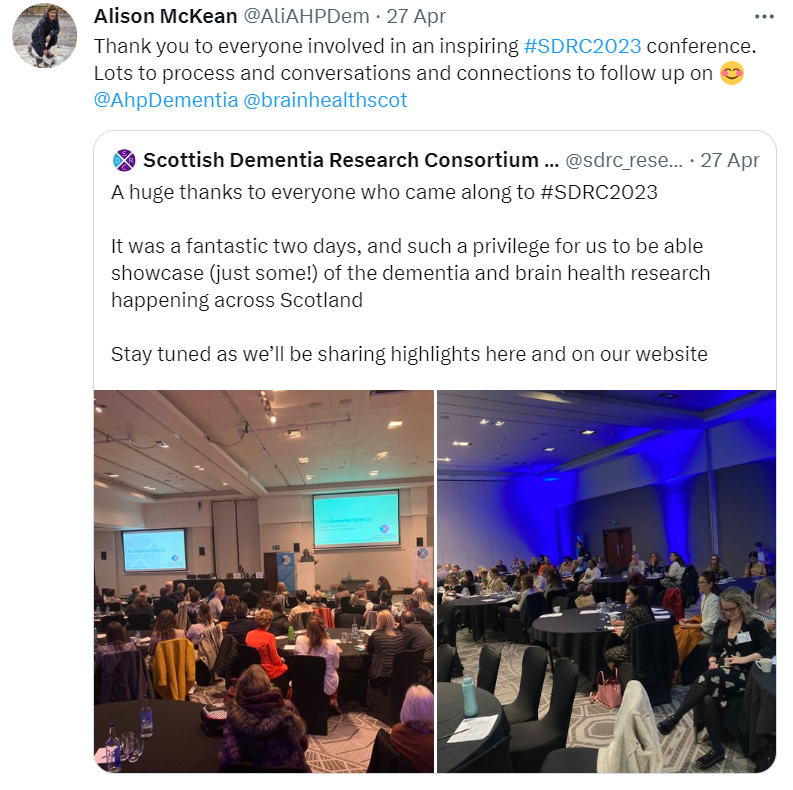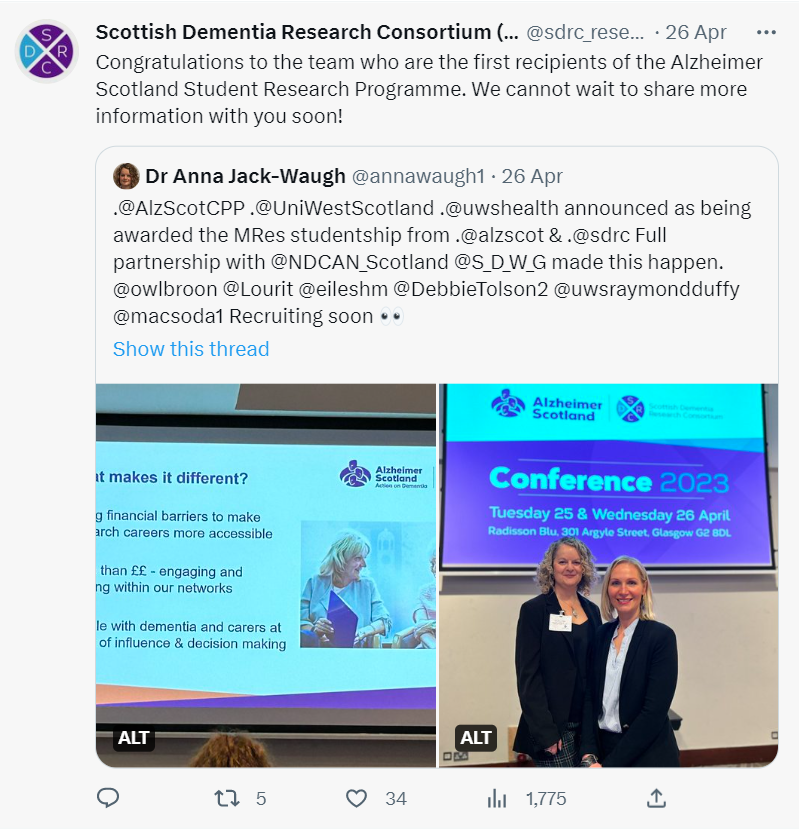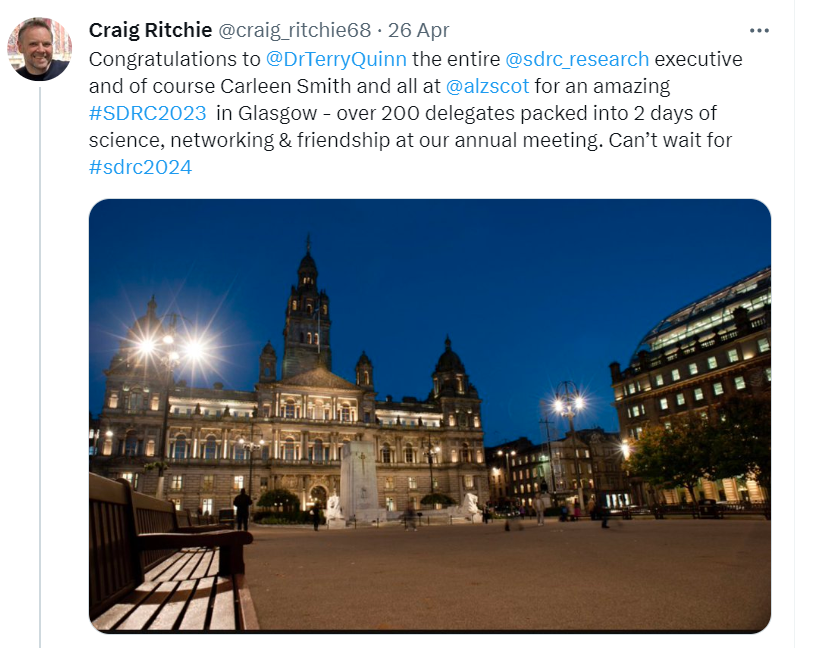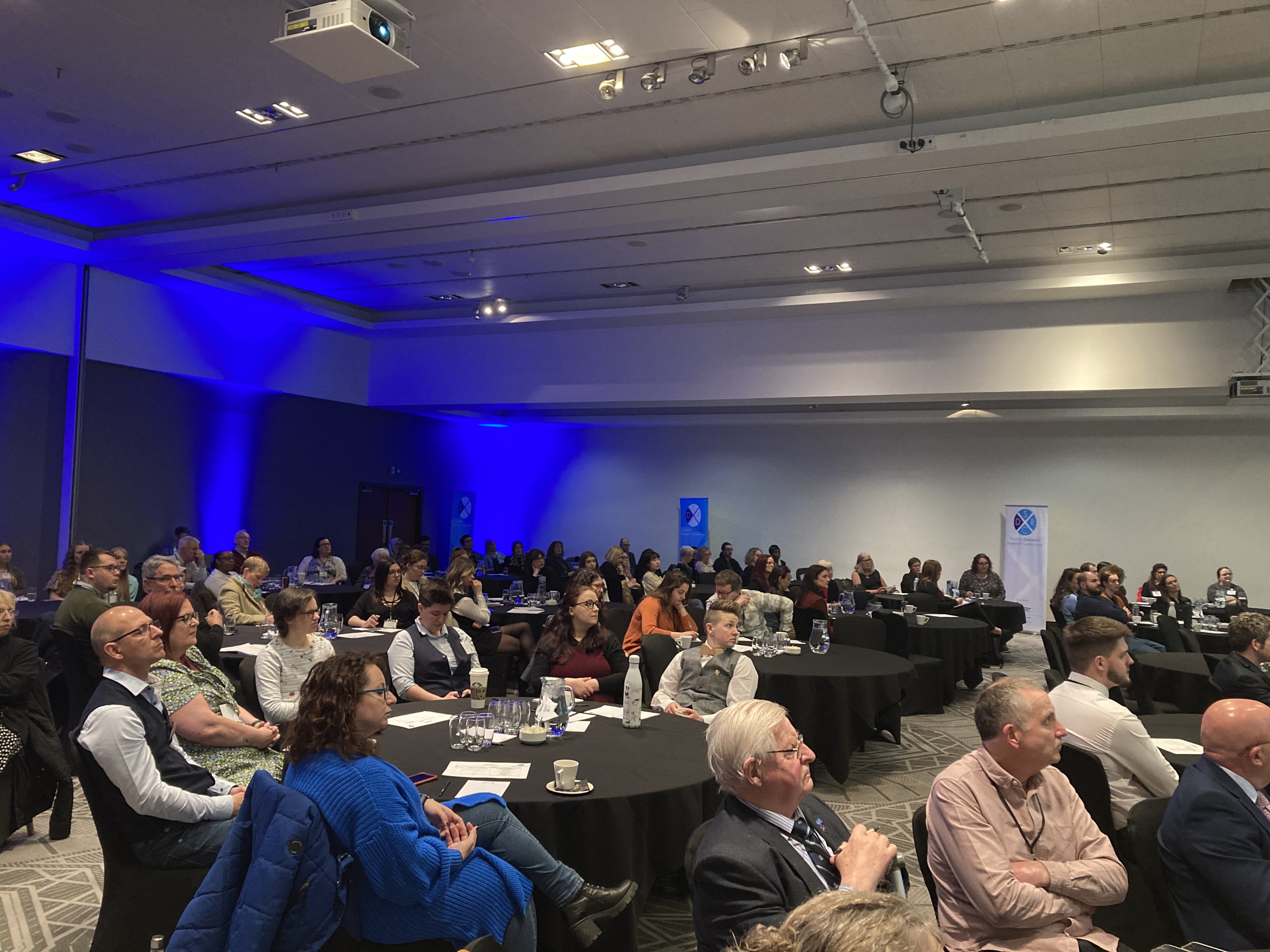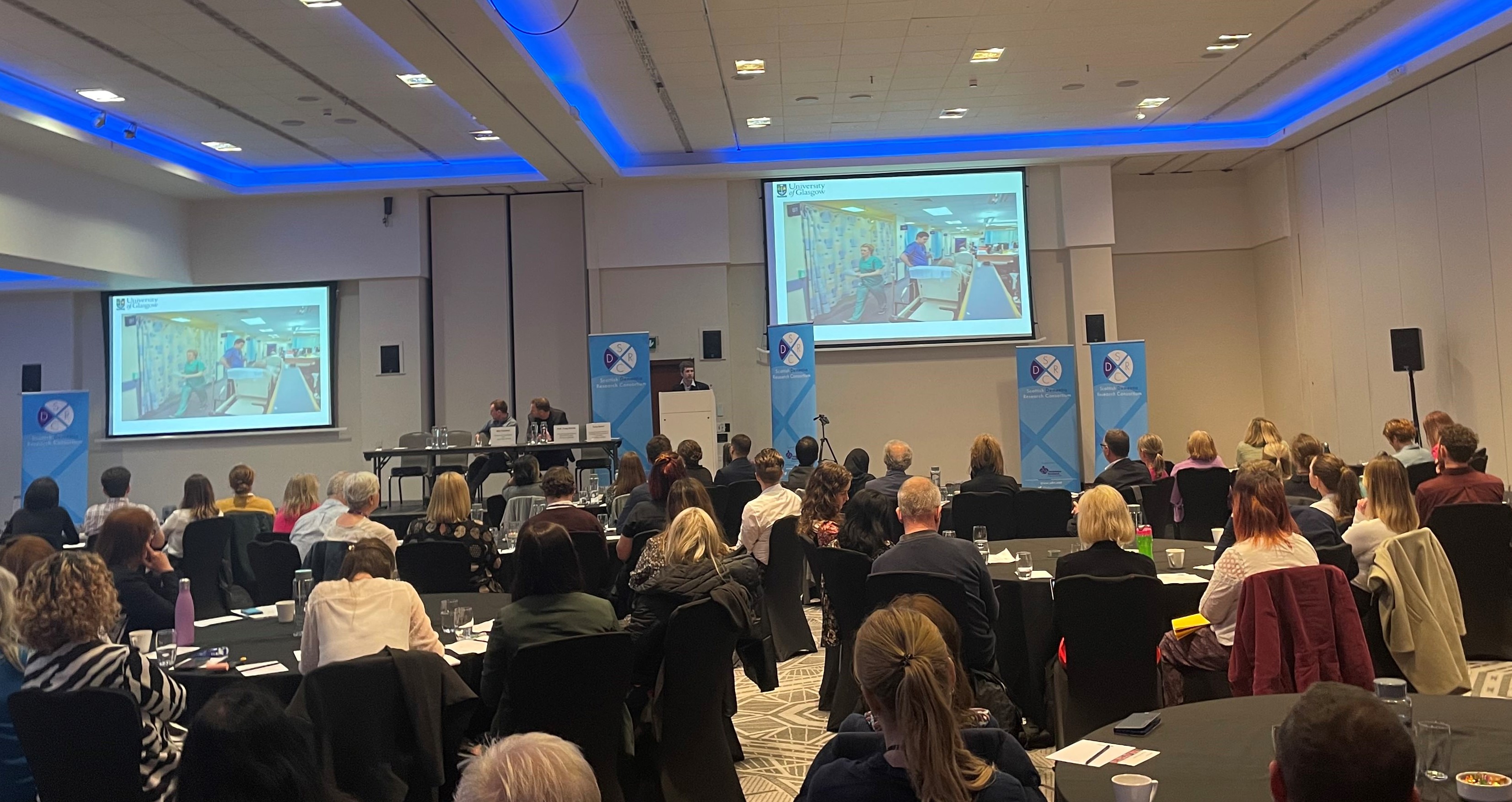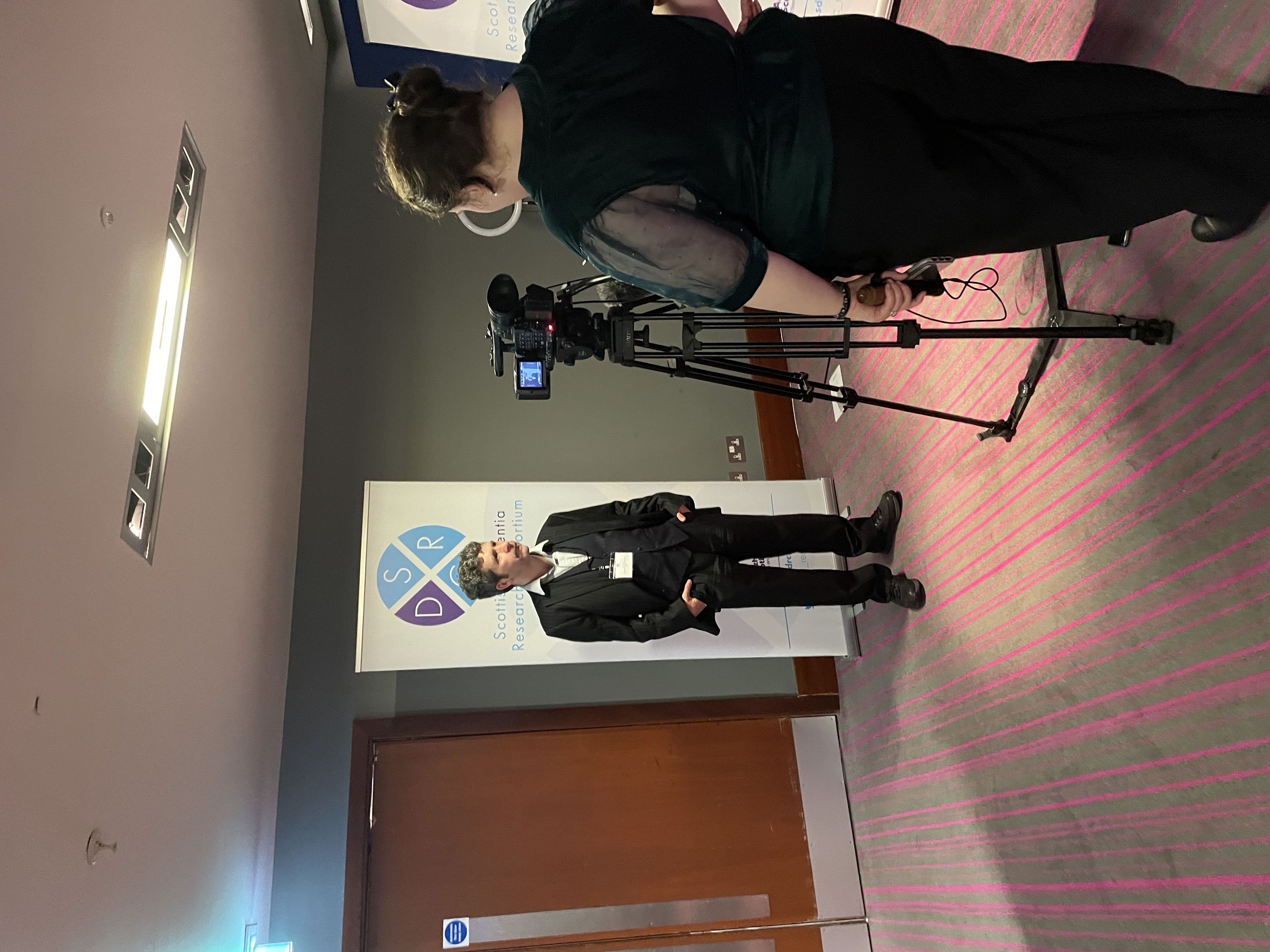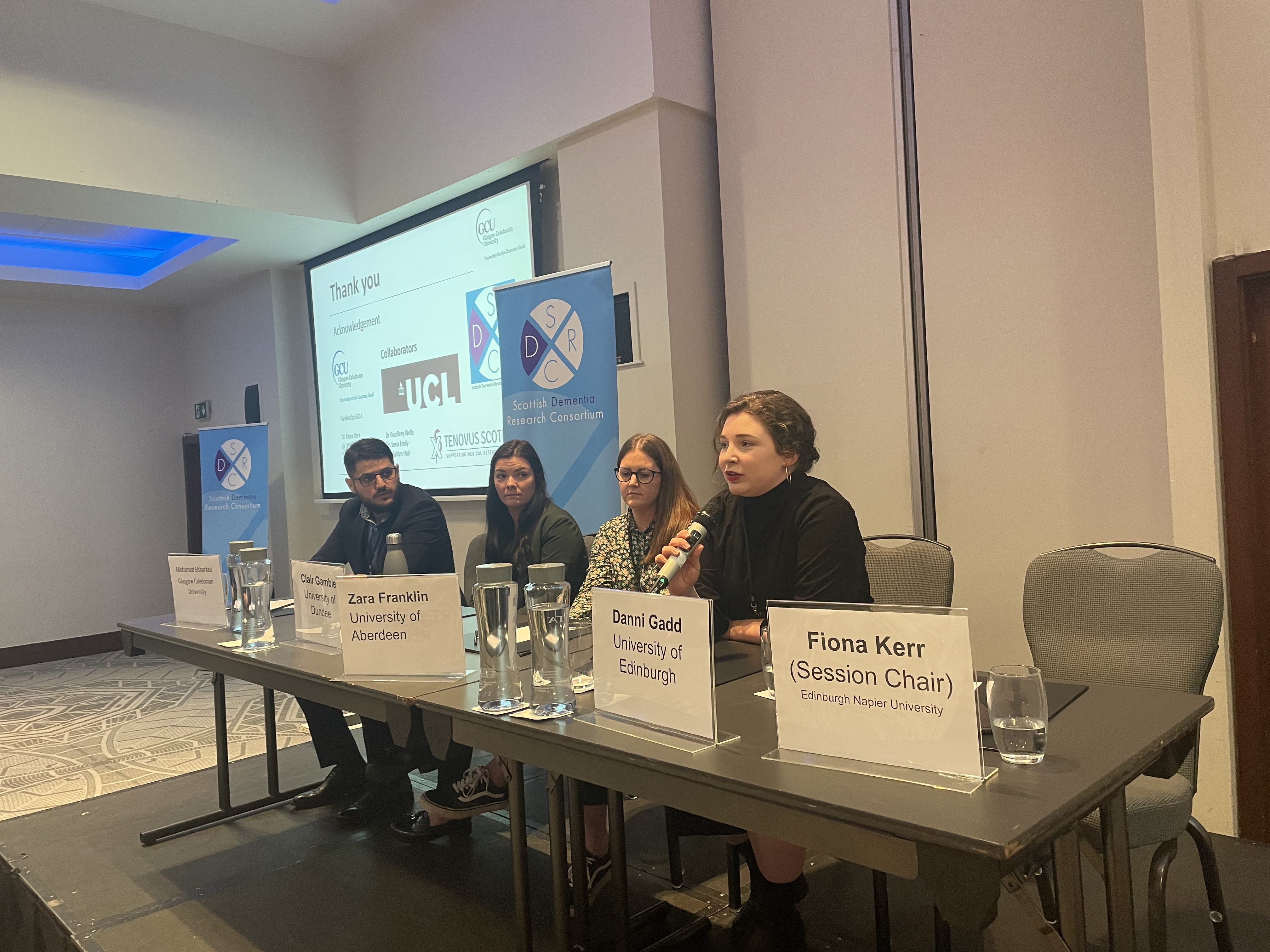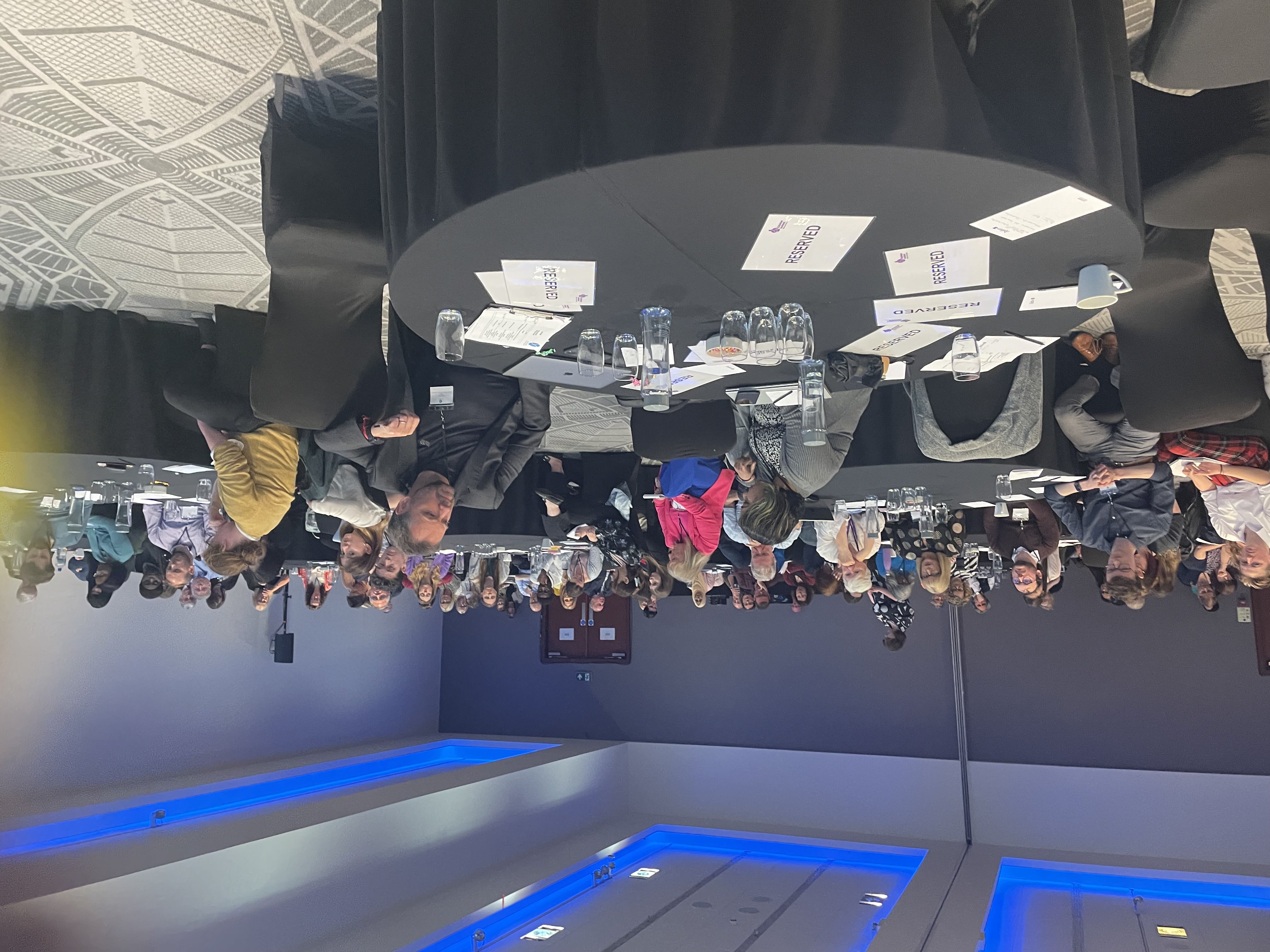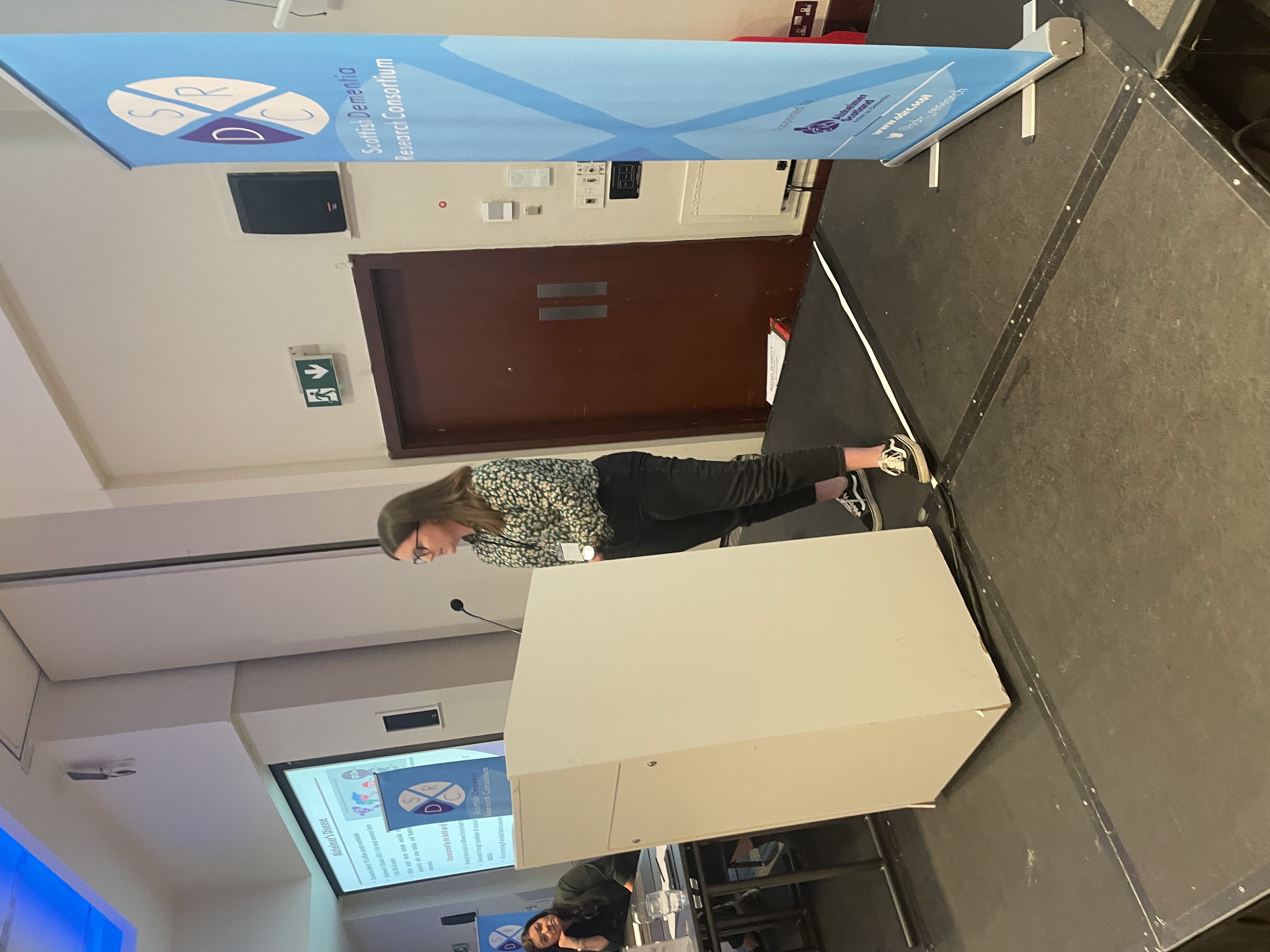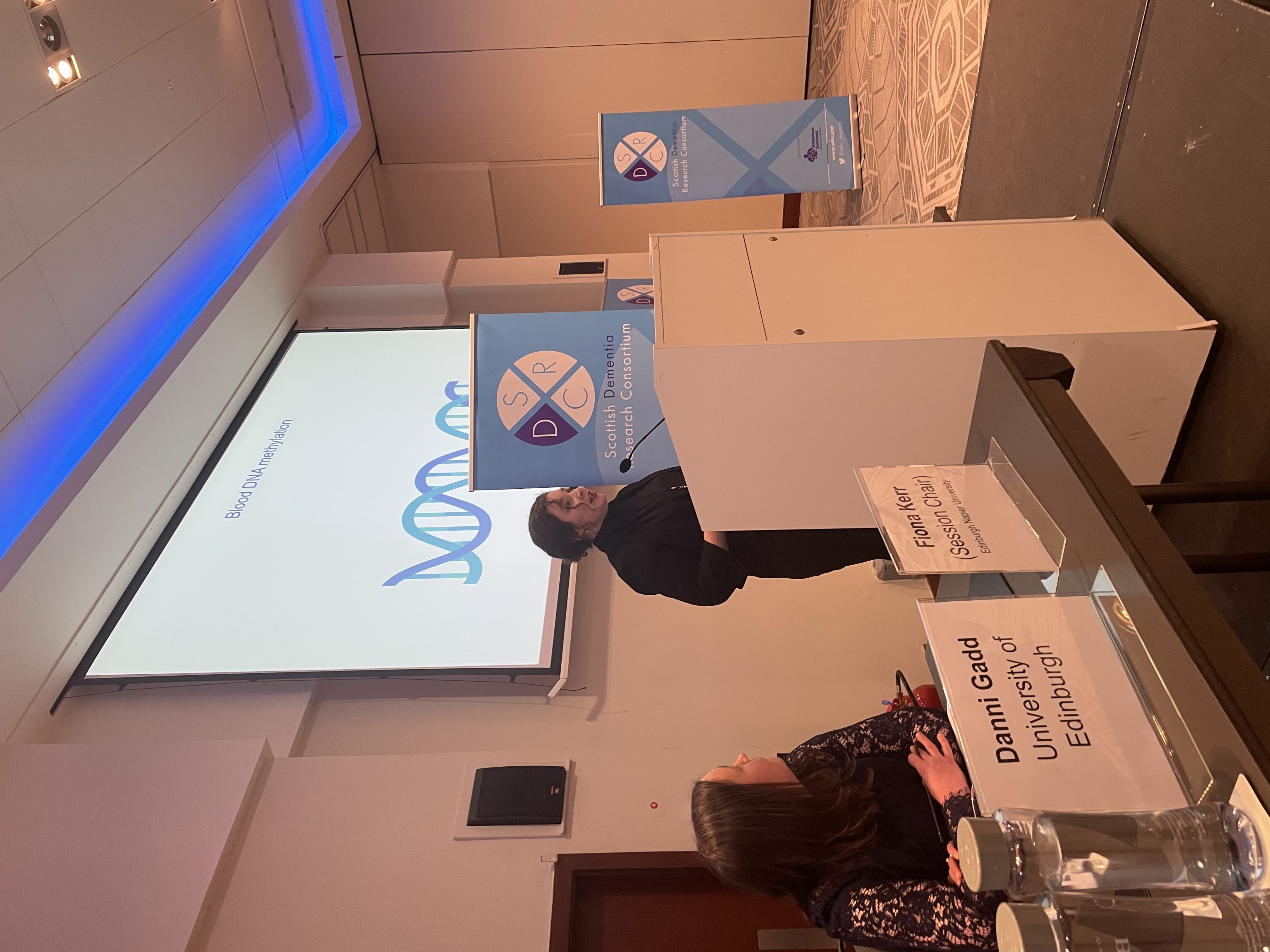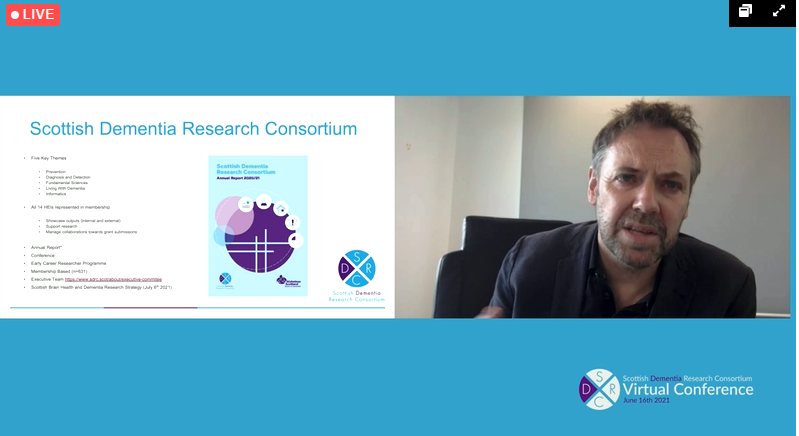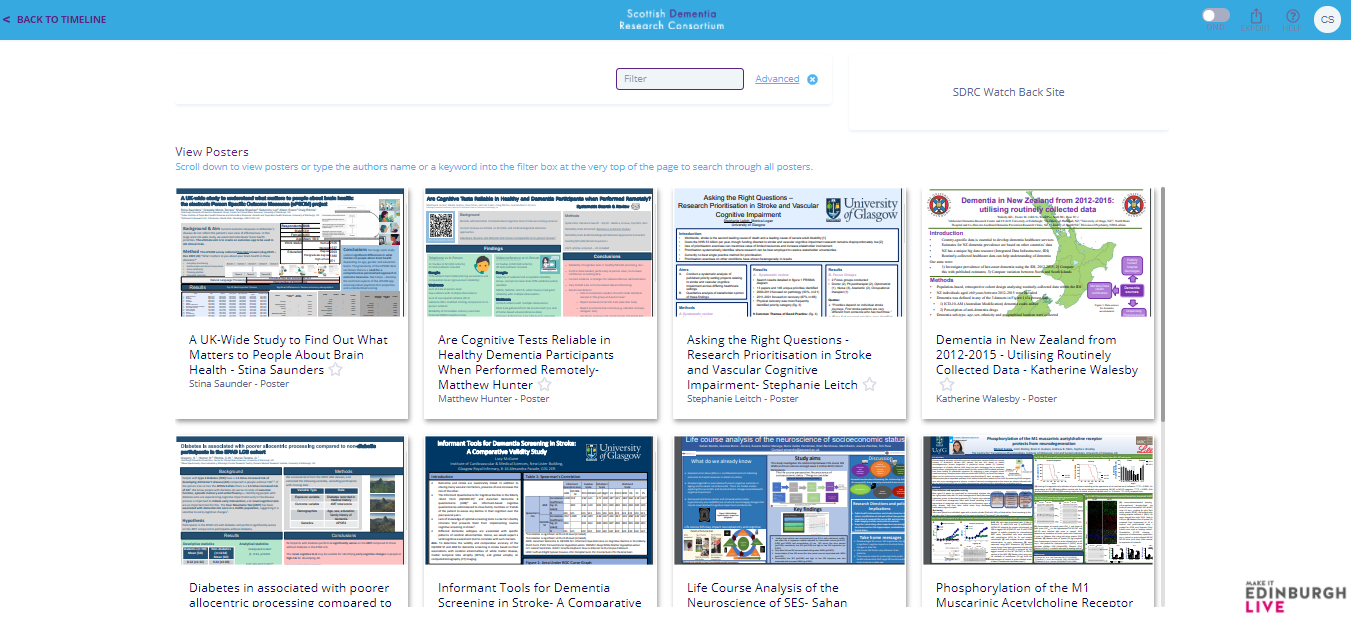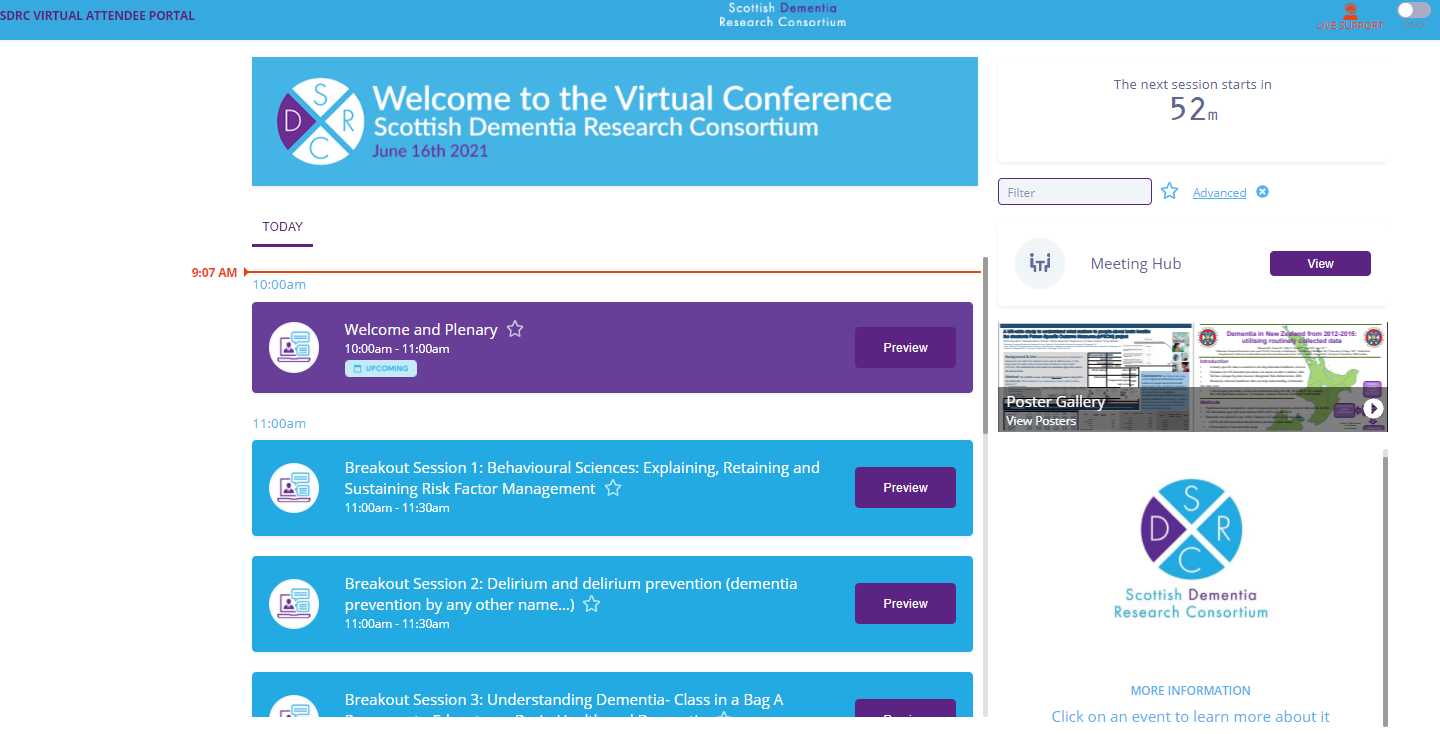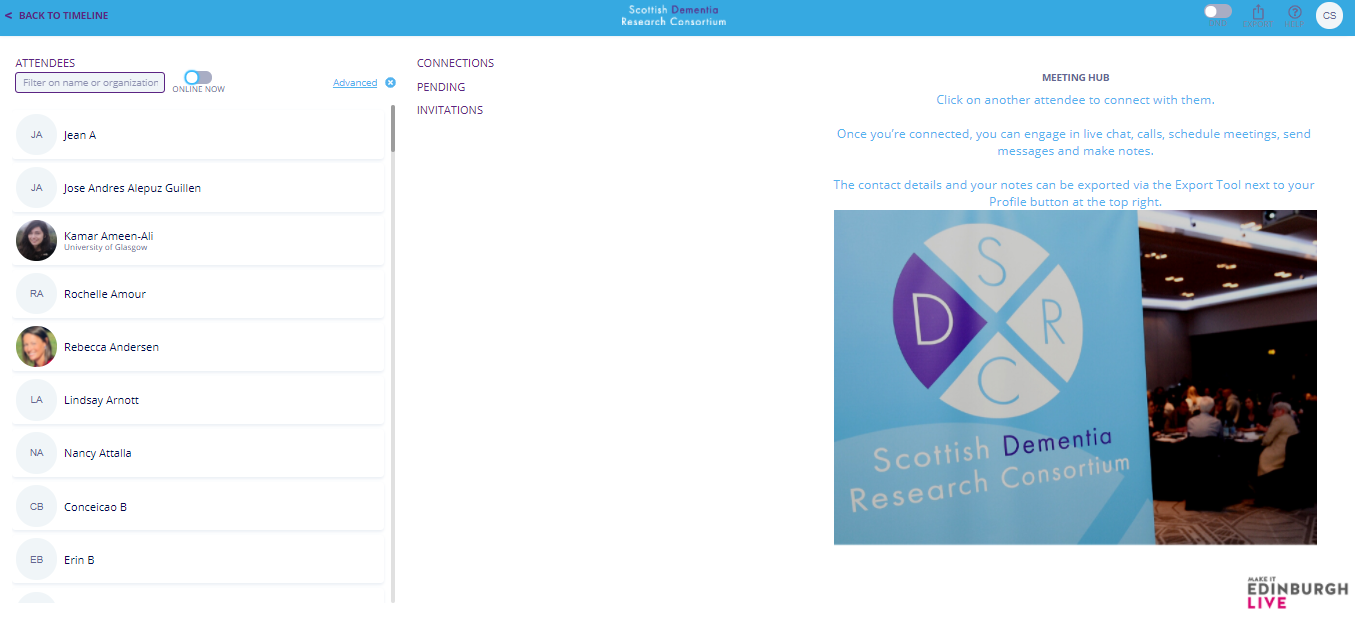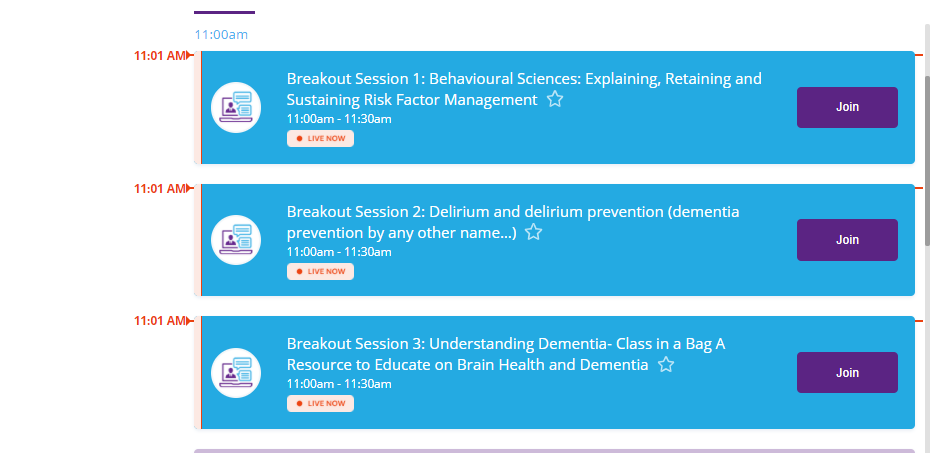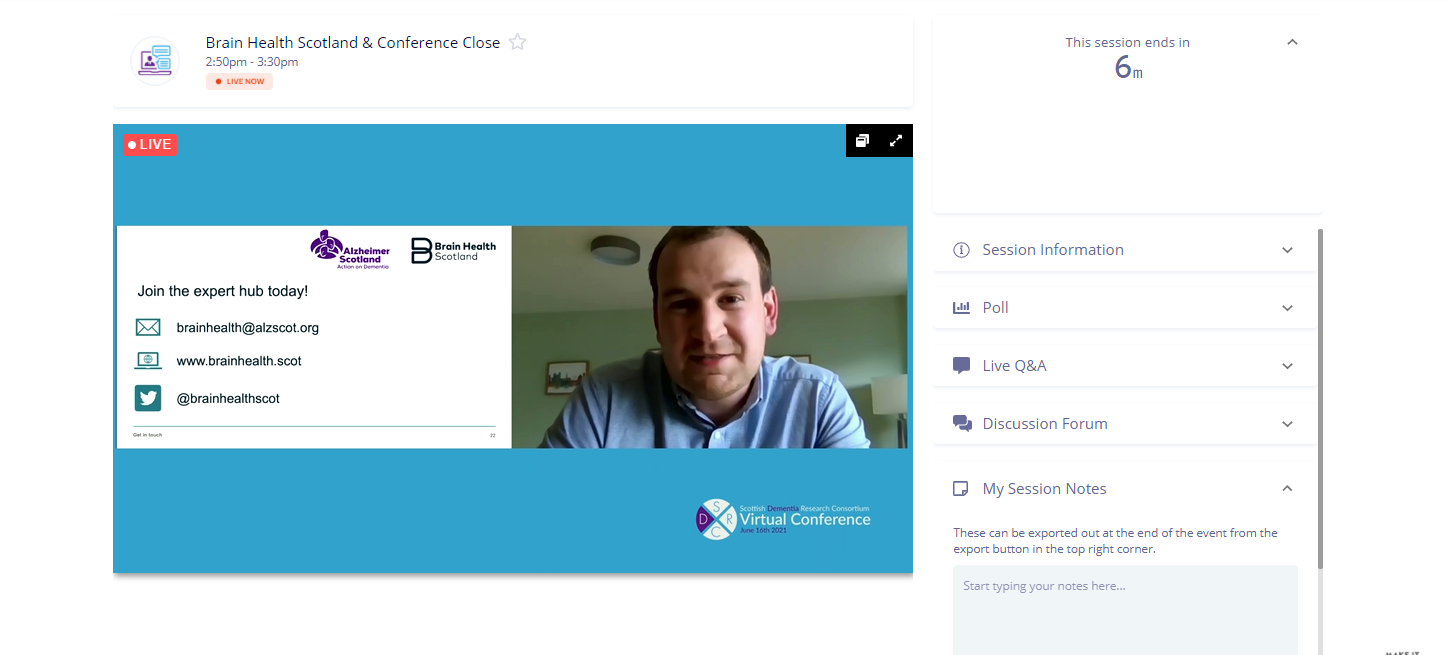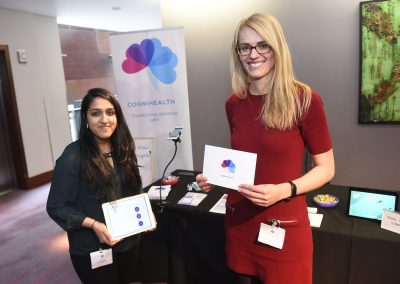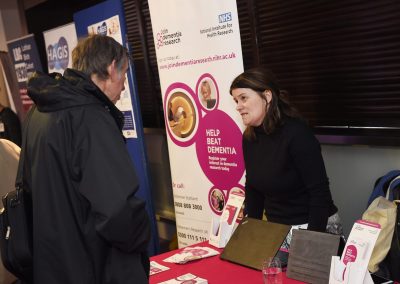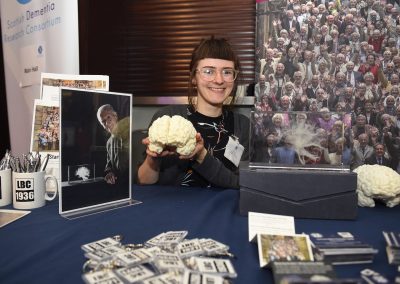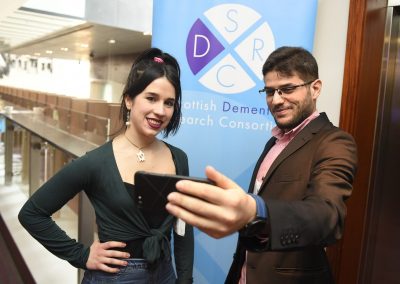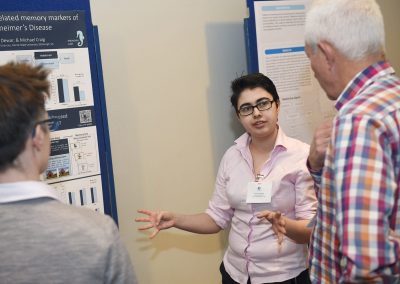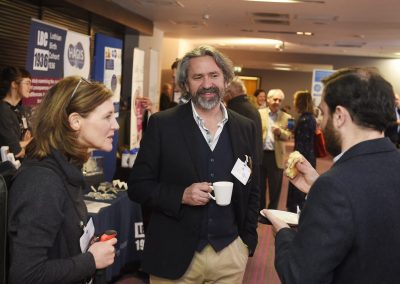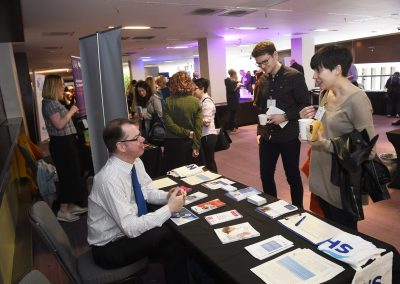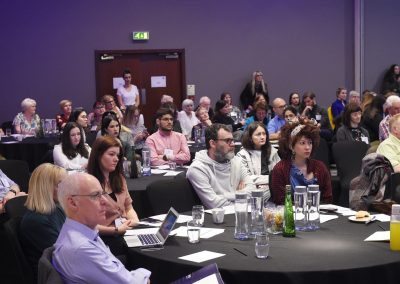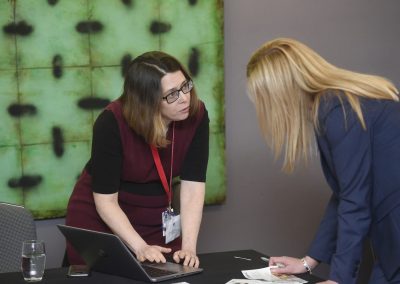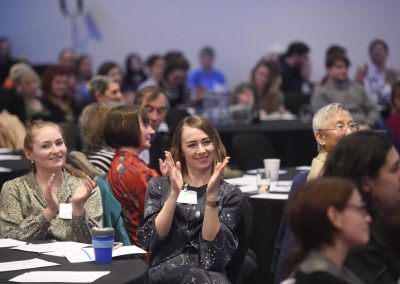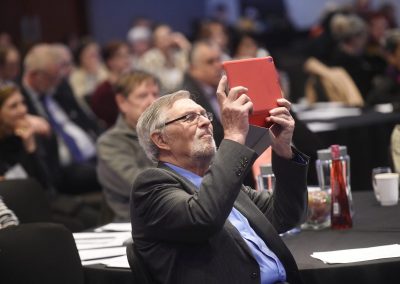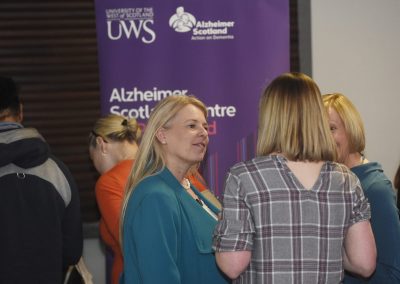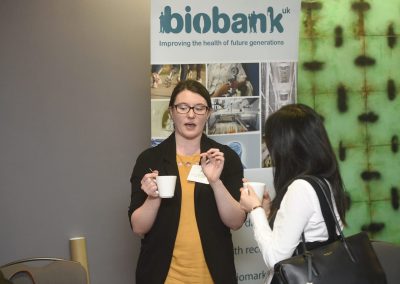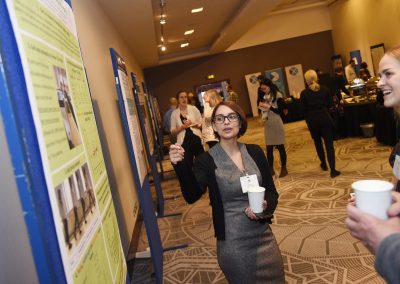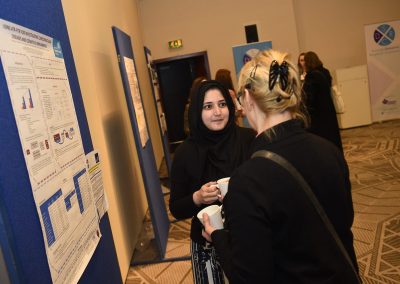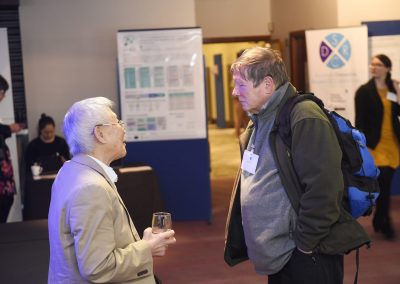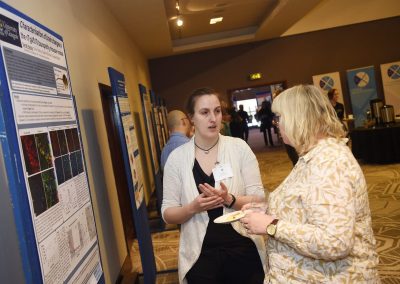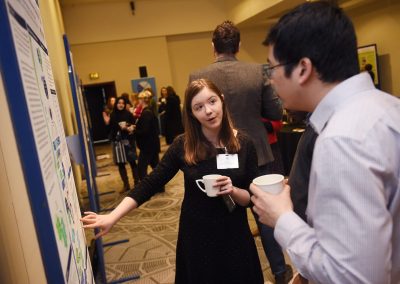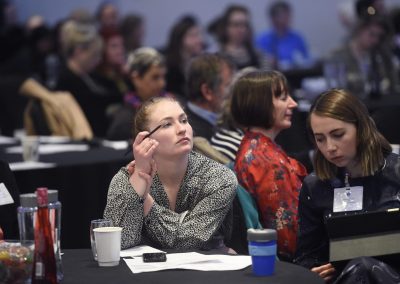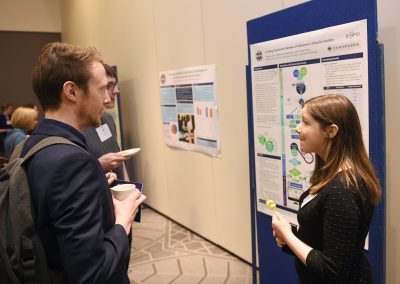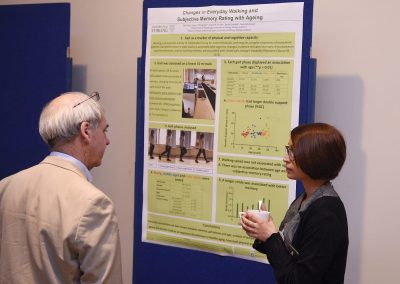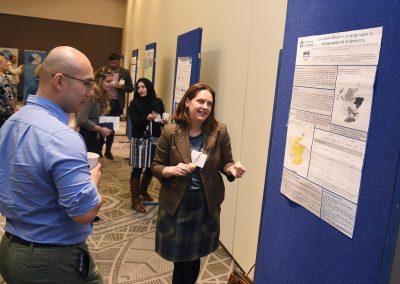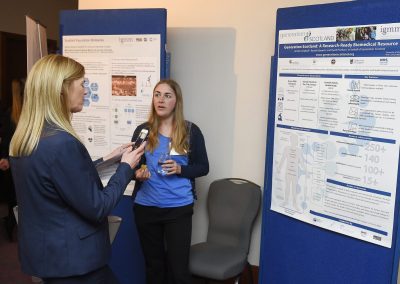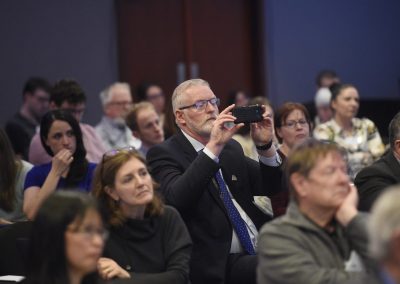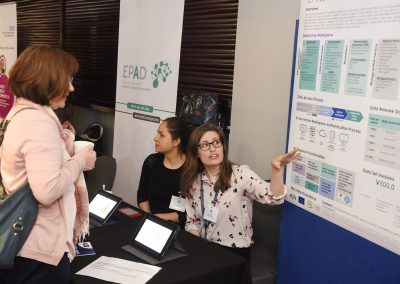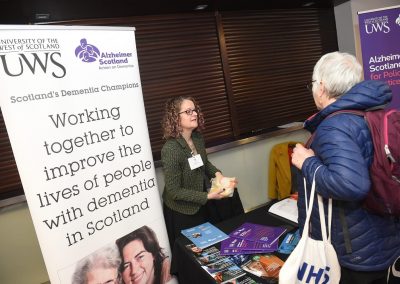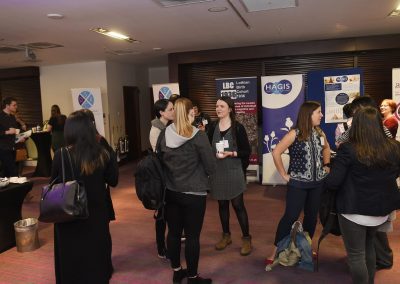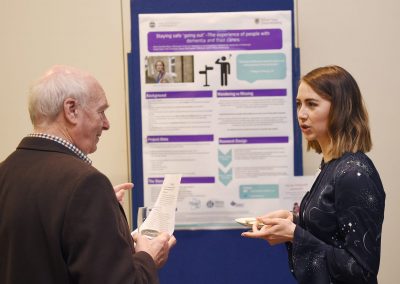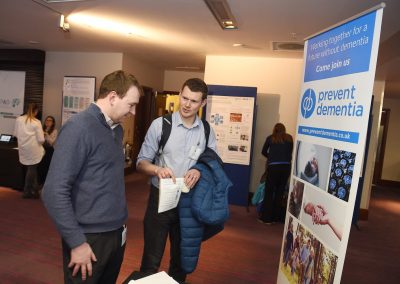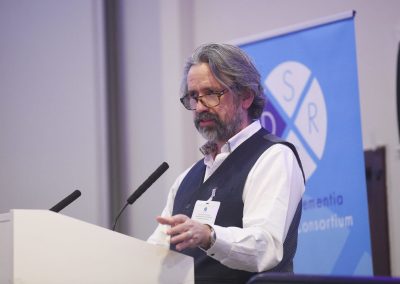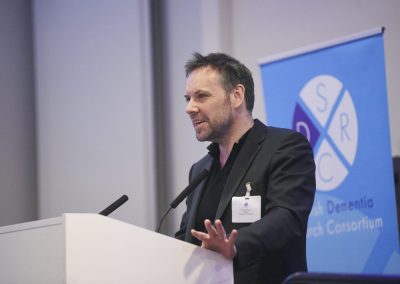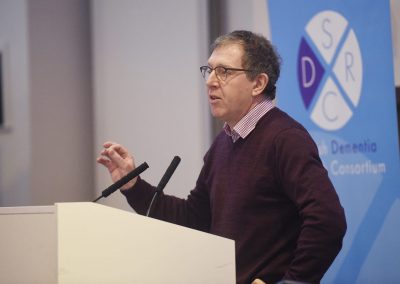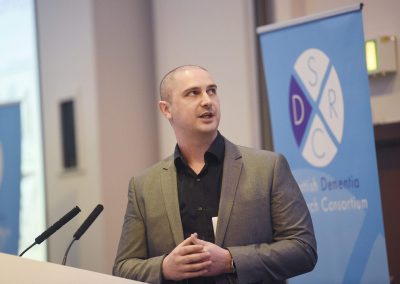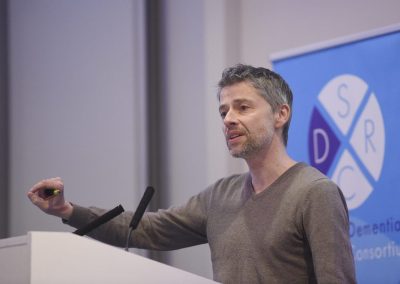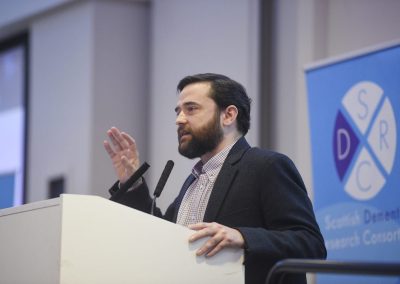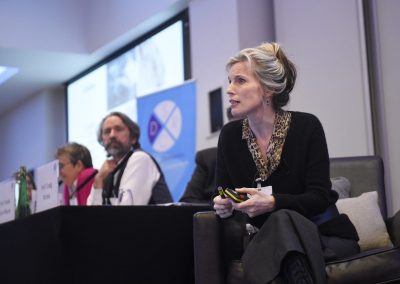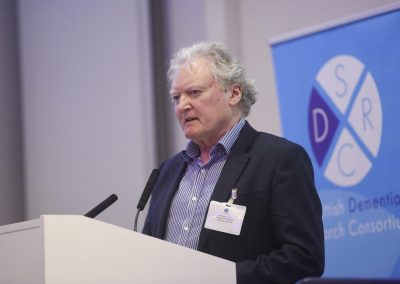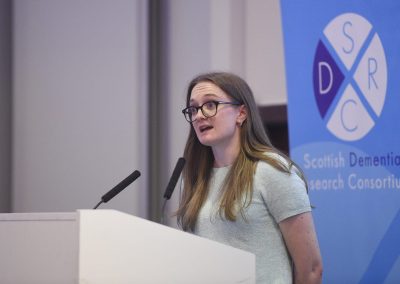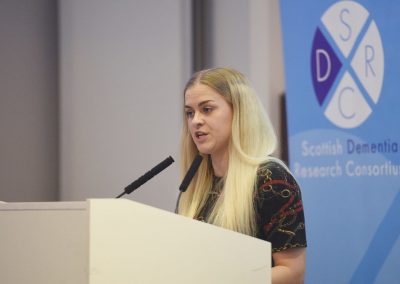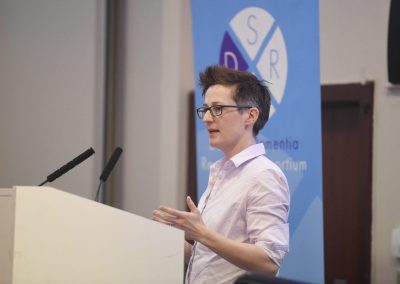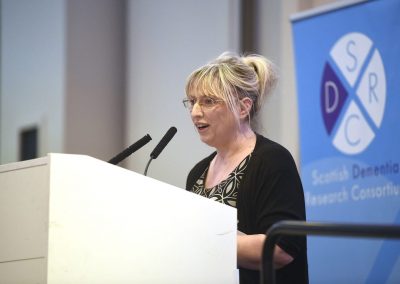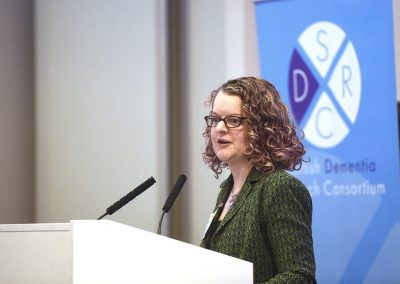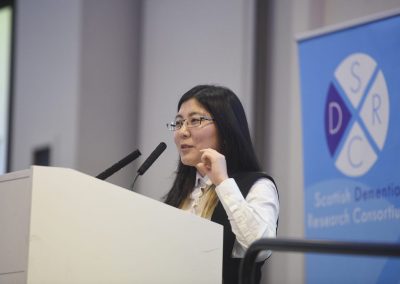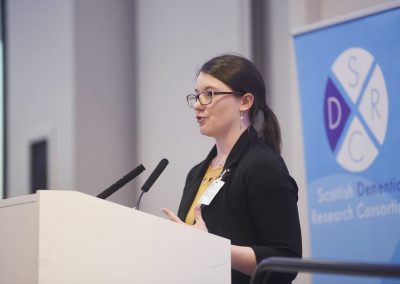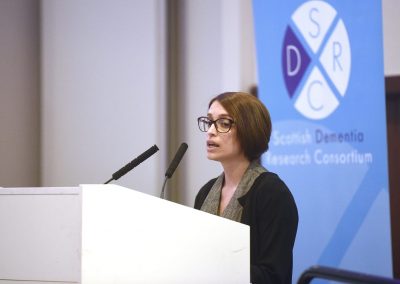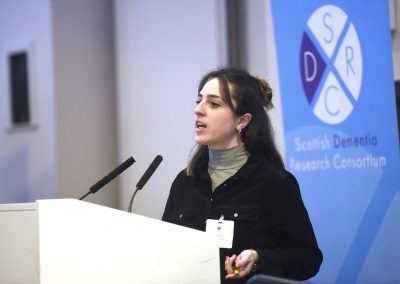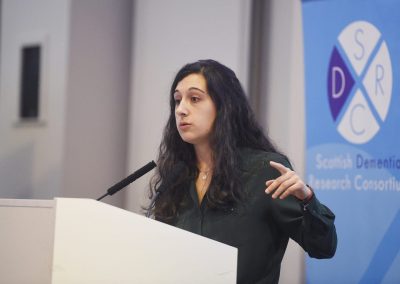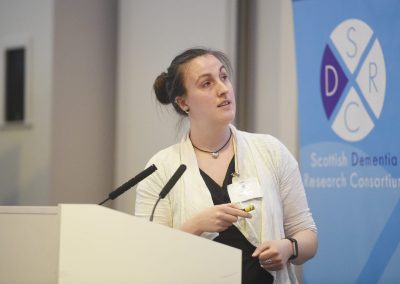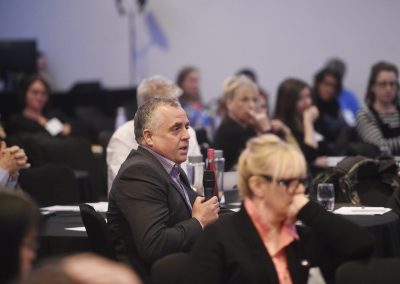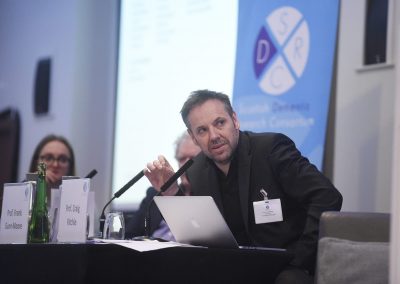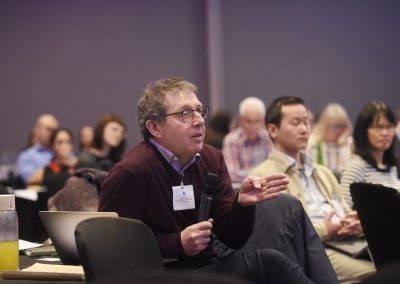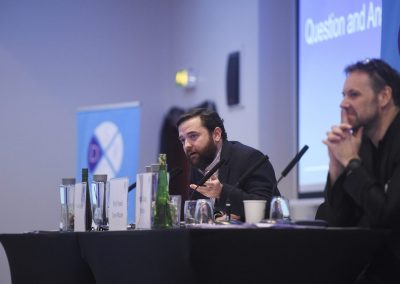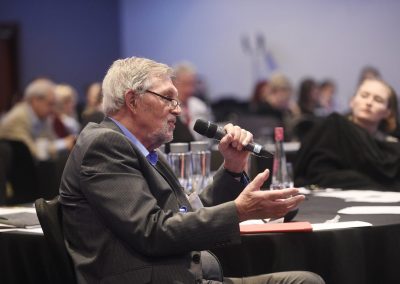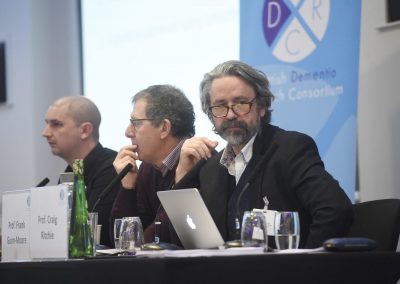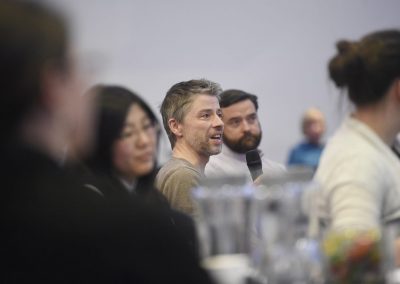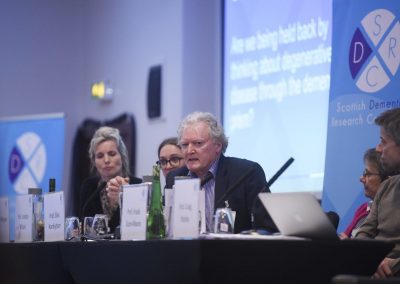Past SDRC Conferences
Every year, the SDRC host an Annual Conference. This is an opportunity to share the work of the SDRC throughout the year and also to celebrate the achievements of our research community, including that of early career researchers.
Click here to out information on our upcoming Annual Conference.
See below summaries and media from our most recent Conferences.
Conference 2024: Celebrating Scottish Research
Conference summaries
The Celebrating Scottish Research Conference 2024 was a two date event which provided delegates with an overview of ongoing research into brain health, dementia and neurodegenerative disease. It featured speakers from across the UK, including researchers of all disiplines and career stages, charitable organisations, funders and people with lived experience.
As with all Conferences in which the SDRC are involved, there were spotlight opportunities for early career researchers to share their work. During the break, there were poster presentations from researchers across Scotland as well as exhibition stands from relevant organisations such as: Brain Health Scotlland, ENRICH, Alzheimer Scotland, Age Scotland, BGS Scotland and SINAPSE.
Thursday 13 June
The first day of the Celebrating Scottish Research Conference 2024 focussed on brain health and neuroprogressive diseases except dementia. It featured speakers from research institutions, charitable and funding organisations as well as people with lived experience.
This morning’s session at the dementia/brain health conference was opened by Dr. Emma Law of the NRS Neuroprogressive and Dementia Network (NDN). The early presentations provided update from partner organisations at the NDN, SDRC, ENRICH, Partners in Research and the Brain Health ARC.
The next presenations related to the Alzheimer Scotland Student Research Programme, a scheme which funds Masters level research projects where the selection are led by people with lived experience. We heard updates from Kelly Kelly, a current Masters student in the programme and announced next year’s recipients.
The Conference provided a platform for early career researchers to present their work. On this day we heard from five researchers sharing their research, its progress and future plans.
Prof Suvankar Pal then presented on the innovative MND SMART trial, sharing its success so far and where it is going next.
The afternoon’s sessions covered updates on neuroprogressive diseases beyond Alzheimer’s, highlighting research on MND, Parkinson’s, MS, Huntington’s disease, and vascular disease. All these presentations highlighted the importance of collaboration not only among researchers but with funding organisations and patient involvement.
Friday 14 June
The second day of the Celebrating Scottish Research 2024, on Friday 14 June, had a more specific focus on research related to alzheimer’s and other dementias.
The opening address was from Henry Simmons, Chief Executive of Alzheimer Scotland. The next speakers were from Brain Health Scotland which updated on their activity including the developments of brain health clinics and their work on behaviour change and brain health.
Across the day on Friday, we heard presentations from three researchers outside of Scotland: Dr Maura Malpetti from University of Cambridge, Prof Paresh Malhotra from Imperial College London and Prof Vanessa Raymont from University of Oxford. They shared on their innovative work relating to detection and clincial trial delivery.
Before lunch, Dr Adam Daly updated on the SIGN guidelines and their implications for research. Then, SDRC Chair Prof Terry Quinn led an interactive session where delegates were asked to think of research questions which could potentially influence future funding calls.
Early career researchers had a platform to present their work both on Thursday and Friday. On this day we heard from three speakers who covered diverse topics ranging from arts-based therapy, to EEG to detect Alzheimer’s, to how to involve autistic people in dementia research.
The final session, to close the Conference, were experts with lived experience. These were people either living with a neuroprogressive condition or a current or former carer. We also learned about how best to involve lived experience from an academic perspective.
The Conference concluded with the Celebrating Scottish Research Awards, which recognised the hard work and successes of brain health and dementia researchers based in Scotland, across all disciplines and career stages.
Congratulations to everyone who received an award and thank you to all those who nominated them!
Celebrating Scottish Research Awards 2024: Winners
We held the Celebrating Scottish Research awards which recognised members of the dementia and brain health research community for outstanding work in their career so far. These were nominated by fellow friends or colleagues and the winners were selected by a judging panel. There were also on the day awards for best poster and speaker presenters. The Award categories and winners are below:
Academic Citizenship
This award recognised those who support the thriving dementia research community in Scotland and contributes in ways beyond their contracted research and teaching. This may have included, but were not limited to, mentorship, outreach, peer review, committee / professional society work and many others.
Winners: Professor Debbie Tolson & Dr Lucy Stirland
Supporting Early Career Researchers
This awarded the more senior researchers who have helped realise the commitment and passion of people who are newer to dementia research. This includes activities that go beyond supporting people from your host Institution.
Winners: Dr Lisa Davison, Dr Lorraine Work
Rising Star
Rising Star could include anyone that considered themselves early in their research career, and did not have a set time-based restriction. This celebrated people who have potential to be a future leader in dementia and brain health research.
Winners: Dr Rose Penfold, Dr Cate Pemble
Best Early Career Researcher Presentations
Winners: Suzie Beresford and Dr Connor Dalby
Poster Prizes
Winners: Austin Dibble, Sara Scarfo, Lauren Binning
Conference videos
Conference slides
SDRC Conference 2023
The SDRC Conference 2023 provided a broad platform for sharing brain health and dementia research activity. On the first day, members of the SDRC Executive Committee updated on ongoing research and achievements on their respective research themes: Diagnosis, Fundamental Science, Living with Dementia, Informatics and Technology, and Prevention.
From beyond the SDRC, we also heard from research partners and friends from around Scotland: Alzheimer Scotland, Brain Health Scotland, SINAPSE, SULSA, Neuroprogressive and Dementia Network, ENRICH, Alzheimer’s Research UK.
There was a broader discussion about brain health and dementia research activity beyond Alzheimer’s including delirium, Parkinson’s, small vessel disease, stroke and traumatic brain injury.
The conference, as with every year, provided an opportunity for early career researchers to share their research findings. In addition, over both days there were presentations from those with lived experience, including participation from people living with dementia and carers. Read: Flash report from National Dementia Carer’s Action Network (NDCAN) and the Scottish Dementia Working group (SDWG) about their experience at the Conference who shared their experience from the perspective of people with dementia and carers

SDRC Conference 2022
The 7th Annual SDRC Conference was a two-day event, on 9th and 10th May 2022. It was held at the Radisson Blu in Glasgow.
We were delighted to be getting back to in-person meetings following the previous two Conferences being online-only due to the pandemic. Attendees seemed to greatly enjoy the opportunities for meeting new people, sharing ideas and networking which hasn’t been able to take place over the past couple of years.
The theme of the Conference was around the diagnosis and detection of dementia. In the early stages of planning the meeting it was clear that in Scotland we are spoiled for choice when it comes to innovative and impactful diagnosis research. We put together a scientific program that should have something for everyone and mixes traditional lectures, with quick fire presentations, workshops and debate. As always with SDRC meetings, we highlighted the incredible work of our early career researchers and we ensured there is plenty of time for more junior researchers to learn, present and network.
From the presentations were heard throughout the two days, the overarching theme was that the research being discussed was “only the start”. The ambition for all researchers is that their work will not be confined to academic journals. For example, their findings will lead to further research, it will form an evidence base which will change practice, will form part of an education programme in the health and care sectors.
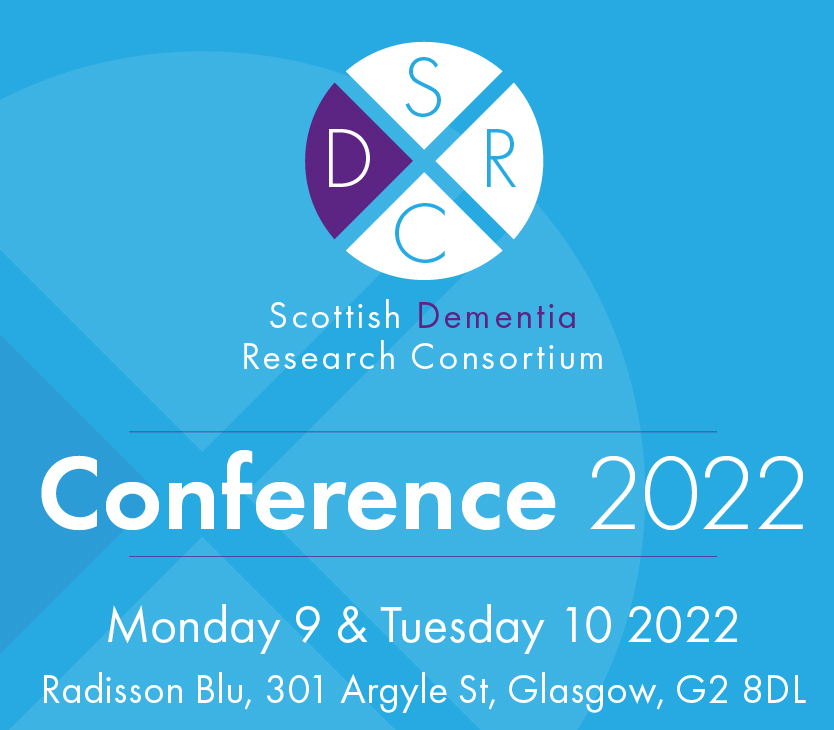
Conference 2021
The 2021 Scottish Dementia Research Consortium (SDRC) conference took place on the 16th June 2021. Once again, due to Covid restrictions, it was an entirely virtual event.
Professor Craig Ritchie, SDRC Chair, chaired the day. He announced the launched of the SDRC Annual Report and gave a preview of the Scottish Brain Health and Dementia Research Strategy.
Our first plenary session was by Professor Edo Richard from Radboud Medical Center, Netherlands titled Prevention of Dementia: from observations to interventions. One of the many advantages of an online conference is bringing in global expertise from researchers around the world!
We also held three breakout sessions where delegates took part in discussions on various topics. These sessions were:
- Behavioural Sciences: Explaining, Retaining and Sustaining Risk Factor Management,
- Delirium and delirium prevention (dementia prevention by any other name…)
- Understanding Dementia: Class in a Bag
During the launch break, our virtual conference platform, which was hosted by the Edinburgh International Conference Centre (EICC), allowed delegates the opportunity to network and speak with each other through meeting rooms and private chat.
Like previous years, the majority the afternoon sessions of the conference put the spotlight on our early career researchers from all disciplines who presented their current work.
Last but not least, the Conference closed with a session from Brain Health Scotland.
We are so grateful to all the presenters, organisers and, of course, all of our delegates who attended. We hope to see as many of you as possible for our 2022 Conference, and we’d be delighted to welcome new and returning faces too!
Be the first to know about future SDRC Conferences
SDRC Conference 2020
The fifth annual Scottish Dementia Research Consortium (SDRC) conference was held on Monday 7th September 2020, online and free for all SDRC members.
The 2020 SDRC Conference, titled “Unlocking the mysteries of data” discussed informatics and how it is used and brain health research, from prevention, diagnosis, to helping to improve the lives of those currently living with dementia. We also held three breakout sessions where delegates could listen to presentations on topics of their choice, with opportunity to ask questions, contribute to discussions and share ideas.
In the second half of the conference, heard from from PhD students and early career researchers from all disciplines who presented their current work.
Our virtual conference space will also featured exhibitors and poster displays from reseachers and organisations relating to dementia and brain health.
SDRC Conference 2019
The fourth annual Scottish Dementia Research Consortium (SDRC) conference was held at the Radisson Blu in Glasgow on Monday 15th April 2019.
Over 150 people attended including members of the SDRC and members of the public with an interest in dementia research in Scotland.
The SDRC Conference showcased the world-leading dementia research taking place across Scotland. We focused on the exciting, and often unusual, research that takes place in laboratories that helps to improve our understanding of dementia and potentially discover new treatments.
We also provided opportunities for PhD students, postdoctoral researchers and others at the early stage of their research career from all disciplines to contribute to discussions and share their ideas.
The Conference was a fantastic success and we would like to thank all the speakers, presenters and everyone who came along.
Be the first to know about future SDRC Conferences
SDRC Conference 2018
The SDRC conference in 2018 brought together dementia researchers from all disciplines, and at all stages of their career. It was a fantastic opportunity to find out more about world-class research happening in Scotland from leaders in their field. What made this event special, however, was the input from Early Career Researchers, who informed other delegates of their ongoing research and the impact it is having.
The conference was a wonderful opportunity for researchers to share ideas and learn from each other. Thank you to everyone who attended for making the event such a success.
Find out more about the SDRC 2019 conference by clicking here
You can watch the presentations again on the videos below, as well as some photographs of the day.

